Waste-Plastic-Recycling – Automotive 22-10-2022 - Arhive
Waste-Plastic-Recycling – Automotive
-Freudenberg secures multi-year automotive contract
Freudenberg Performance Materials (Freudenberg) has concluded a high-volume, multi-year contract with a global automotive Tier One company to supply high-performance gas diffusion layers for the stacks forming the core of fuel cell systems.
The global target applications are mid-sized and heavy commercial vehicles, as well as buses. The customer’s global fuel cell activities will accelerate the breakthrough of mass-produced fuel cell stacks.
Fuel cell technology is a major pillar of a successful energy transition. Gas diffusion layers play a key role in this context, being indispensable for the functioning of the fuel cell and having a significant impact on the performance of the fuel cell stack. Freudenberg already has more than 20 years of unique expertise in the development and production of gas diffusion layers for fuel cell applications in the mobility sector and for porous transport layers used in electrolyzers.
Capacity expansion
“This high-volume, multi-year industrial-scale order is confirmation that the long-term investment in our technologies and the close cooperation with our customers is paying off,” said Dr Frank Heislitz, Freudenberg Performance Materials CEO. “As a result, fuel cell technology will become an increasingly important pillar of our business activities going forward.”
Freudenberg is currently expanding its production capacity at its Weinheim headquarters by installing additional lines and further investments are on the verge of implementation.
A fuel cell converts the chemical energy of hydrogen and atmospheric oxygen into electricity. Functionally-optimized gas diffusion layers made of carbon-fiber based nonwoven are installed on both sides of a catalyst-coated membrane positioned in the middle of the fuel cell. The gas diffusion layers distribute hydrogen and oxygen evenly to the membrane and remove the electricity, heat and water generated by the CO2-free chemical reaction.
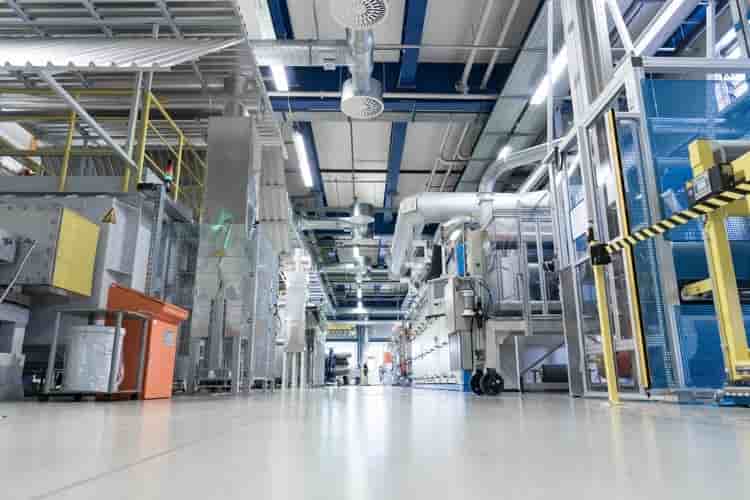
-SK geocentric Introduces Waste Plastic Recycling Cluster in Germany
SK geocentric is introducing the world’s first ‘waste plastic recycling cluster’ at a global plastics expo in Germany, the company announced on Oct. 21
SK geocentric is participating in K 2022, the world’s largest plastic and rubber industry fair which is held in Dusseldorf, Germany from Oct. 19-26. The fair is organized every three years and is considered one of the world’s top three plastics exhibitions.
The recycling cluster is being built in Ulsan for completion by 2025. SK geocentric will put together the three major plastic chemical recycling technologies in one place for the first time in the world. The three technologies extract high-purity polypropylene (PP) by dissolving waste plastic in a solvent, dismantle the polymerized polyester (PET) polymer and return it as a raw material, and pyrolyze waste plastic to convert it into chemical fuel. When completed, about 250,000 tons of waste plastics can be treated per year.
On display at the company’s exhibition booth are recycled plastic materials produced using technologies of Pure Cycle Technologies of the United States and LOOP Industries of Canada, which formed a strategic cooperative relationship with SK geocentric. Already commercialized products such as L’Occitane shampoo bottle and Evian mineral water bottle made from recycled plastic are also on display.
SK geocentric also introduced its ESG brand and eco-friendly integrated product brand ‘CYCLUS’ for the first time through this expo. CYCLUS is a Latin word that means ‘cycle’ and contains the meaning of ‘CYCLE + US (us)・Earth (Earth)’.
The Earth shape of the CYCLUS brand means three categories — plastic recycling product group (Recycle), biodegradable material (Bio), and functional material (Technique). The company’s exhibition booth at K 2022 also highlight these three themes.
The exhibition space for functional materials focuses on ethylene acrylic acid (EAA), a high value-added chemical material with high technological barriers. A few global chemical companies including SK geocentric account for more than 80% of the global EAA supply.
The EAA-coated paper cup, introduced by SK geocentric, uses about a third of the amount of plastic that goes into the coating compared to the current general paper cup that is coated with low-density polyethylene (LDPE). This can have the effect of reducing the amount of plastic used.
SK geocentric also introduced functional eco-friendly materials such as ethylene acrylate-based copolymers (additives that minimize deterioration in physical properties when recycling plastics), whose demand is expected to increase along with the growth of the recycled plastics market.
SK geocentric also promoted Busan’s bid to host Expo 2030 by playing promotional videos on the screen of the exhibition hall and distributing brochures.
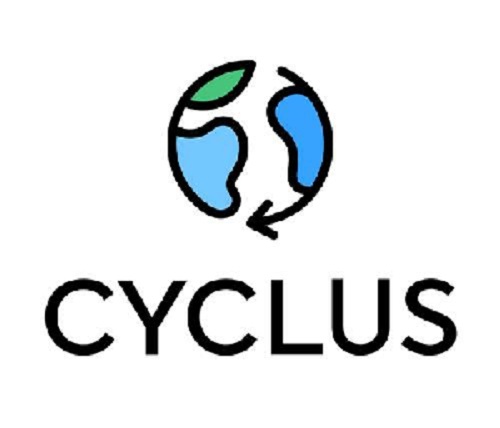
-Bühler and Pellenc ST partner to better meet the needs of PET plastic recyclers
Bühler and Pellenc ST have officially joined forces to offer PET plastic recyclers a complete front and back-end solution for plastic bottle and flake sorting. It is hoped that this partnership will successfully future-proof PET recyclers’ processing activities and deliver the highest final quality. A North American agent agreement has been the first to be signed as part of this collaboration by two companies with shared cultures and interests.
PET plastics recyclers are set to benefit from the recently combined expertise and innovations developed by the Swiss-based Bühler Group and France-based Pellenc ST. The new partnership features Bühler’s PET flake sorting solutions: the SORTEX N PolyVision and the SORTEX A GlowVision, as well as Pellenc ST’s Mistral+ Connect bottle sorter.
“This alliance has been set up to streamline the sorting process for PET plastics recyclers, providing one port of call for our companies’ collective customer base,” says Carlos Cabello, sales director of digital technologies and lead of Bühler in Northern Europe. “We look forward to the collaboration between the teams on both sides. Our sales managers, field engineers, and research and development (R&D) experts will all be working together as a united force to shake up and add new value to the plastics market.”
“We share a complementary product portfolio that combines our strengths and provides a stronger service,” says Nicolas Deleris, sales director of plastics recycling at Pellenc ST. “We also share a long-term vision with a lot of collective experience which has given us market maturity. We hope that our collaboration will be beneficial for recycling and promising for clients”
North America is the first to secure an official agent agreement between Bühler and Pellenc ST. A joint demo and applications centre is to be opened by Pellenc ST in November 2022 in North America, featuring Bühler’s SORTEX A GlowVision optical sorter.
Both companies’ long-term aim is to work together to tackle upcoming issues in the global plastics industry.
“By combining the best of both companies, we are strengthening the industry and delivering the best possible customer experience,” says Jean Henin, CEO of Pellenc ST.
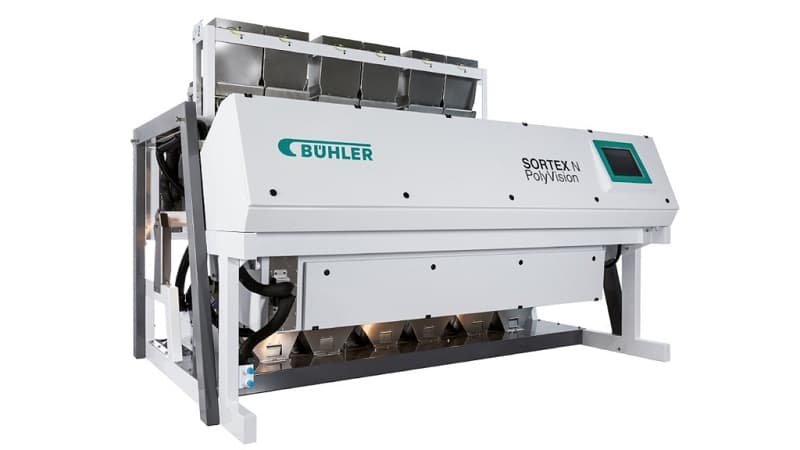
-Europe boosts recycled content 20%, challenges loom
The European plastics industry increased its use of post-consumer recycled content in products by 20 percent last year, to a 10 percent level, but it wants stronger policies from governments supporting chemical recycling to accelerate that.
The head of the trade group Plastics Europe made that argument at an Oct. 20 news conference at K 2022, where the association unveiled its “Plastics — The Facts 2022” report on economic trends.
The group called chemical recycling a key lever, along with more mechanical recycling, for increasing the circularity of plastics, and it stressed that it wanted to see specific legislation supporting chemical recycling to encourage investment.
“There are massive investment announcements, in Europe and globally, and we need to make sure that recognition [of chemical recycling] is there at the European level, in legislation, so the investor security is there, yesterday,” said Virginia Janssens, Plastics Europe managing director. “We need it yesterday. … We need that enabling framework to move faster.”
As part of that, the group said a regulatory system that accepts mass balance standards, a system for measuring recycled or renewable content within fossil fuel-based feedstocks, is important for chemical recycling.
Janssens also said expanding traditional mechanical recycling is important.
The Brussels-based trade group’s report said European plastics products used 10.1 percent recycled content in 2021, or about 5.5 million metric tons, which was a 20 percent increase from the year before. That figure includes recycled-content plastic used in all markets in Europe, including packaging as well as in durable goods like housing, construction and cars.
The report said bio-based plastics made up 2.3 percent of European plastics production in 2021, meaning that 12.4 percent of the total European plastics production is nonfossil fuel-based.
In a news release, the group endorsed the European Union’s “aspirational target” of having 20 percent of the continent’s plastics come from nonfossil carbon by 2030. By comparison, it said, for the global plastics industry and its 390 million metric tons of production in 2021, 9.8 percent of it came from non-fossil-based sources.
Plastics News will be putting out trade show dailies at K 2022. We’ll also be on hand for all of the breaking news and press conferences at K. Be sure to sign up for our special K newsletters so you don’t miss a thing.
PN, and our sister publication Sustainable Plastics, will be at Hall 6, Booth C08, where you can pick up a copy of our show dailies.
The global post-consumer recycled-content average is 8.3 percent and bio-based 1.5 percent, Plastics Europe said.
Janssens said the European industry is committed to following a path laid out in its April report “Reshaping Plastics,” which called on the industry to speed up investments in circular and recycling technologies to boost recycling rates and, by 2050, get the industry to net zero carbon emissions.
She said the association would be developing a road map next year to implement that report.
Echoing what other European associations have said at K, though, Janssens said the energy crisis in Europe from the Russia-Ukraine war is creating significant challenges.
“Even though the market demand for recyclates is higher than the supply, the soaring energy and feedstock prices resulting from Russia’s unjustified aggression towards Ukraine are driving very significant challenges for our industry, supply chain and all EU economies,” the group said in a news release. “Supply bottlenecks will likely continue to be an issue in the coming months.”
It also said “huge uncertainties” in feedstock supply, energy prices and potential shortages make it extremely difficult to provide a 2023 outlook.
In its news release, it said Europe’s global competitiveness in plastics is at risk, with the continent falling from 23 percent of global plastics production in 2006 to 19 percent in 2017 and to 15 percent in 2021.
Janssens told reporters that the European plastics industry is still assessing the full impact of the energy crisis but said the industry is facing potential production stops.
In its news release, the group said the continent’s plastics production is expected to decrease 4 percent by the end of the year.
But Janssens said the industry will continue to move ahead with investments in circularity.
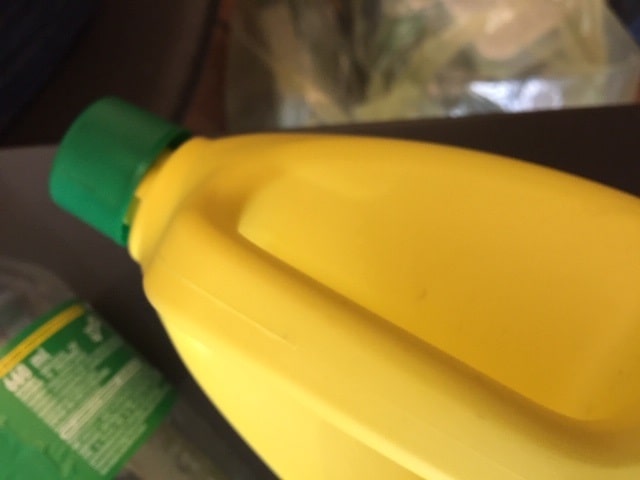
Cyclyx International, ExxonMobil and LyondellBasell today announced they have signed an agreement to advance development of a first-of-its-kind plastic waste sorting and processing facility in the Houston area. The new facility addresses a critical missing link in the plastic waste supply chain by connecting community recycling programs to new and more advanced recycling technologies that have the potential to take a much wider variety of plastic materials.
The Cyclyx Circularity Center will be unique among plastic recovery facilities, producing feedstock for both mechanical and advanced recycling. The center will leverage new technologies to analyze plastics based on their composition and sort them according to customer specifications for their highest and best reuse.
The circularity center will be located in the Greater Houston area, with commercial start-up expected in 2024. The facility will be designed to produce 150,000 metric tons or 330 million pounds of plastic feedstock per year, supplying ExxonMobil and LyondellBasell advanced recycling projects as well as mechanical recycling markets. Total investment for the first circularity center is estimated to be $100 million, contingent upon a final investment decision in early 2023.
“To help increase the overall U.S. recycling rate and meet growing customer demand for circular products, more investment is needed by governments and industry to collect and sort waste,” said Dave Andrew, vice president of new market development at ExxonMobil. “With this new facility, we are making a substantial investment in plastic waste sorting infrastructure to accelerate our advanced recycling efforts in Baytown and along the Gulf Coast.”
“We are growing our global recycling capacity and actively pursuing opportunities to help capture more plastic waste from landfills in order to make it suitable for recycling,” said Yvonne van der Laan, executive vice president of circular and low-carbon solutions at LyondellBasell. “This agreement is a perfect example of how collaboration across the value chain can help close the gaps to make a circular economy possible, such as access to plastic waste feedstock.”
“This project serves as proof of how significant the need is for custom blended plastics feedstock,” stated Joe Vaillancourt, CEO of Cyclyx. “With our capability to accept and process a wide range of waste plastics based on their chemistry profile which we custom blend to the needs of our customers, we are creating a new set of recycling options for difficult-to-recycle waste plastics that today are sent to landfill. Our circularity centers will allow us to make available a much larger amount of waste plastic into usable feedstock than has been possible with the current recycling infrastructure. Additional circularity centers are under consideration on the Gulf Coast and other locations.”
Cyclyx, ExxonMobil and LyondellBasell are members of the Houston Recycling Collaboration whose mission is to help the City of Houston significantly increase plastic recycling rates, leveraging new technologies and infrastructure, such as this Cyclyx facility, to recycle nearly all plastics.
As of September 2022, ExxonMobil has processed more than 6,700 metric tons (nearly 15 million pounds) of plastic waste at its Baytown facility, recycling materials that may have otherwise gone to landfill or incineration. When the facility’s expansion is complete later this year, it will be among North America’s largest advanced recycling facilities, with an annual capacity to recycle 30,000 metric tons of plastic waste. Leveraging ExxonMobil’s existing manufacturing assets, plans are underway to build up to 500,000 metric tons (1 billion pounds) of annual advanced recycling capacity by year-end 2026 across multiple sites globally.
LyondellBasell has a goal to produce and market 2 million metric tons of recycled and renewable-based polymers annually by 2030. To deliver on this ambition, the company recently announced a new organizational structure including a Circular and Low-Carbon Solutions business segment and is strategically investing along the value chain.
Cyclyx has a goal of processing more than 650,000 metric tons of waste plastic per year by 2026. Consistent with this goal, Cyclyx is focused on its mission to help increase the plastics recycling rate from 10 to 90% by getting the right feed to the right technology, creating a new supply chain for waste plastic, and diverting post-use plastic from landfill.
-Erema: New double filtration machine for post-consumer recycling4
With its new development Intarema TVEplus DuaFil Compact, the company wants to redefine the quality level for recycling particularly challenging post-consumer materials.
A key feature of the double filtration machine is the consistently gentle treatment of the melt throughout the entire process. This is the result of combining TVEplus technology, patented and proven thousands of times over, with the new DuaFil Compact technology. “Because there is no discharge metering zone and the melt pump is custom designed to the application, the pressure build-up required for the second filtration unit is especially efficient and only needs a much lower temperature”, explains Sebastian Sochor, R&D Engineer at Erema.
The extruder does not need to build up pressure and can be built much shorter, 10 L/D shorter compared to the previous Erema double filtration solution. The lower melt temperature of the DuaFil Compact in this area has a positive effect on the melt quality and significantly reduces energy consumption”, says Sochor.
That is how the new Intarema TVEplus DuaFil Compact 1108 achieves a melt temperature upstream of the second filter unit that is 18.5 degrees Celsius lower than the previous Erema double filtration solution when processing LDPE supermarket film containing paper, and consumes 10 percent less energy overall (specific energy consumption kWh/kg). Another advantage is in the processing of LDPE/LLDPE material streams that often have varying degrees of moisture and contamination due to impurities such as paper labels, wood particles or foreign polymers.
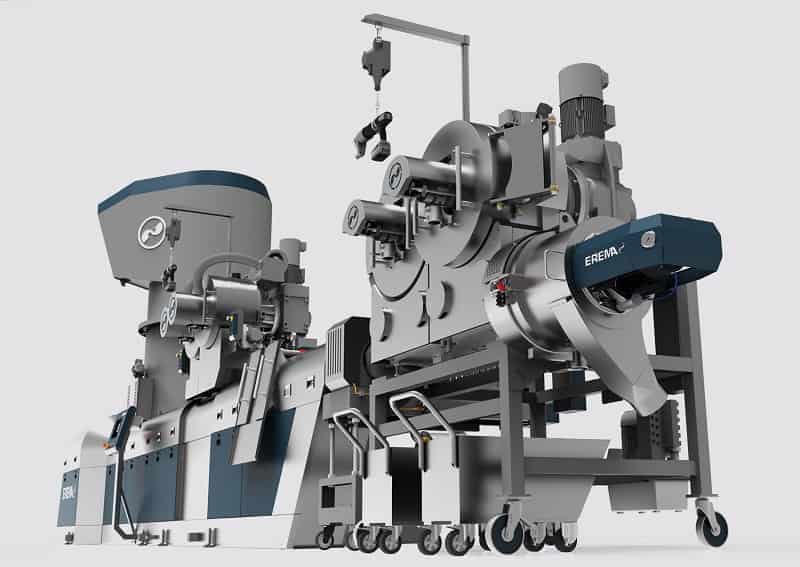
-LyondellBasell, Shakti Plastic partner to build mechanical recycling plant in India
The companies say they estimate the plant will get started in 2024 and is intended to process postconsumer rigid packaging.
Chemicals and refining company LyondellBasell, Rotterdam, The Netherlands, and Mumbai-based plastics and polymers recycler Shakti Plastic Industries have signed a memorandum of understanding to partner on a joint venture to build and operate a fully automated mechanical recycling plant in India, which both companies say is expected to begin operation at the end of 2024.
The companies say the plant will become the largest of its kind in the country and is intended to process postconsumer rigid packaging, producing 50 tons of recycled polyethylene (PE) and polypropylene (PP) per year, equivalent to the single-use plastic scrap produced by 12.5 million citizens.
LyondellBasell says it will market the recycled products processed at the plant, adding volume to its Circulen Recover range of existing PE and PP materials to help meet increasing demand by converters and brand owners in India for recycled polymer materials.
“The proposed joint venture will allow us to address the issue of plastic waste in the second-most populated country in the world and expand our circular polymer product offering to India,” LyondellBasell Executive Vice President of Circular and Low Carbon Solutions Yvonne van der Laan says. “Combining our respective expertise with Shakti Plastic Industries will create an innovative system that can be scaled as the circular economy grows.”
The companies say the joint venture will leverage their respective strengths. Shakti Plastic Industries will use the development of a recycling infrastructure in India to provide structure and formality to the waste collection process to secure materials to use at the new plant. Meanwhile, LyondellBasell will apply its expertise in plastic production technology, product development and its knowledge of the polymer markets in India.
“The circular economy will increasingly develop into a critical part of the plastic value chain in India, requiring solutions across the value chain to develop a sustainable world of plastic recycling,” Shakti Plastic Industries Managing Director Rahul V. Podaar says.
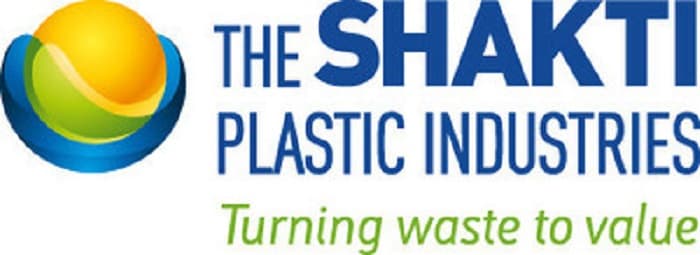
-Dow Accelerates Goals for Circular Plastics
Company will meet rapidly growing demand with 2030 Transform the Waste target by building industrial ecosystems to collect, reuse, or recycle plastic waste.
Dow will accelerate the sustainability targets it set in 2020 by expanding its Stop the Waste target to a Transform the Waste target. By 2030, Dow will transform plastic waste and other forms of alternative feedstock to commercialize 3 million metric tons of circular and renewable solutions annually. To do this, Dow will expand its efforts to stop the waste by building industrial ecosystems to collect, reuse or recycle waste and expand its portfolio to meet rapidly growing demand.
“We are expanding our commitments to address plastic waste and meet customers’ increasing demands for more sustainable and circular products,” says Jim Fitterling, Dow’s chairman and chief executive officer. “Through investments in key technologies, infrastructure and strategic collaborations, we are expanding our Stop the Waste goal to reflect the transformation of Dow’s plastic franchise and leadership to enable a circular economy. We will increase the value of waste and enable a new industrial ecosystem to grow, which in turn will allow Dow to scale our ability to produce circular and low-carbon emission solutions.”
It is expected that the waste required to produce 3 million metric tons of circular and renewable solutions per year by 2030 will surpass and replace Dow’s original 1 million metric ton goal.
“Our expanded sustainability target reflects our commitment to raise the bar for ourselves and the broader industrial ecosystem as we leverage our materials science expertise, commitment to circular innovation and productive collaboration with our partners,” says André Argenton, Dow’s chief sustainability officer and vice president of Environment, Health & Safety.
Progress made through agreements, collaboration, and investment.
Several recently announced circular and mechanical offtake agreements and projects will help contribute to achieving the target, including:
- Agreements with Mura Technology to construct multiple world-scale advanced recycling facilities in the U.S. and Europe, collectively adding as much as 600KT of annual capacity;
- An investment to build the largest single hybrid recycling site in France, managed by Valoregen, which will secure a source of post-consumer resins (PCR) for Dow;
- A collaboration with Nexus Circular to create a circular ecosystem in Dallas, Texas, for previously non-recycled plastic building on its previous Hefty EnergyBag collaboration with Nexus and Reynolds Consumer Products;
- Mechanical recycling collaboration with Boomera LAR in Brazil;
- An investment in Mr. Green Africa and an agreement to co-develop more traceable, fair, and high-quality PCR that can be used in the production of new flexible plastic packaging; and
- A memorandum of understanding (MoU) with Lucro Plastecycle to develop and launch polyethylene (PE) film solutions using PCR plastics in India.


